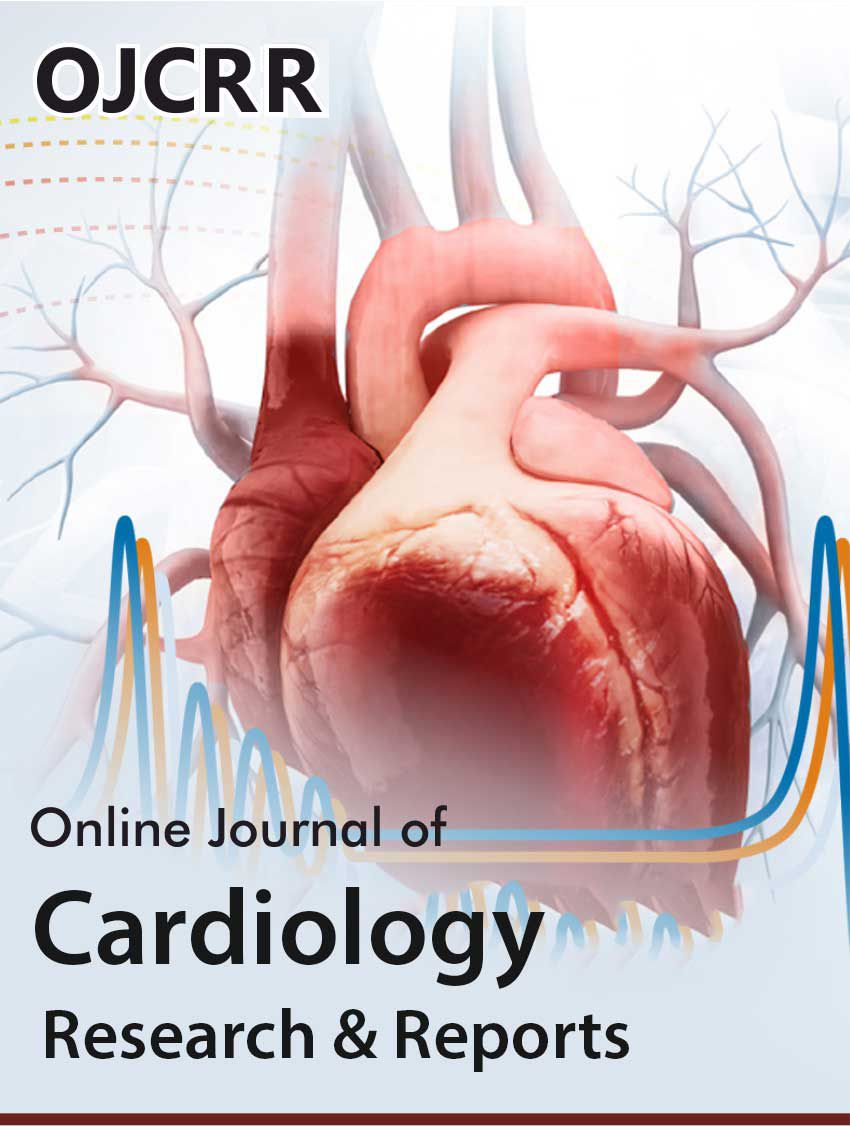 Review Articlee
Review Articlee
Right Ventricular Cardiogenic Shock Caused by Myocardial Infarction: A Review
Luhanda Leonora Cardoso Monti Sousa1*, Guilherme Dagostin de Carvalho1, Amália Bonfogo2, Sasha Barbosa da Costa Pimenta Duarte1 and Thiago Luis Scudeler 1
1Instituto do Coração (InCor), Hospital das Clínicas da Faculdade de Medicina da Universidade de São Paulo, São Paulo-Brazil
2Instituto do Coração de Santa Catarina, Brazil
Luhanda Leonora Cardoso Monti Sousa, Instituto do Coração (InCor), Hospital das Clínicas da Faculdade de Medicina da Universidade de São Paulo, São Paulo-Brazil
Received Date: May 04, 2020; Published Date: May 20, 2020
Abstract
Left ventricular inferior wall acute myocardial infarction is associated with right ventricular myocardial infarction (RVMI) in up to 50% of cases. The worse prognosis of RVMI is due to the greater propensity for refractory cardiogenic shock (CS) when compared to isolated inferior wall myocardial infarction (IWMI). The diagnosis is based on the clinic, biomarkers, electrocardiogram (ECG) and coronary angiography. Meanwhile, imaging modalities, such as transthoracic echocardiography (TTE) and cardiac magnetic resonance (CMR) play a complementary role. Understanding ventricular interdependence is of paramount importance to perception and management hemodynamic changes. In this scenario, hemodynamic impairment can be caused by right ventricular (RV) dysfunction, left ventricular (LV) dysfunction, a combination of these, or even by other disorders. Early revascularization is the cornerstone of treatment. When cardiac output (CO) and blood pressure do not improve with the initial volume expansion, the introduction of vasopressors and inotropes is necessary. For those who survive the acute phase, long-term prognosis is usually favorable. The best prognosis in these cases relies on early revascularization and adequate hemodynamic management.
-
Luhanda Leonora Cardoso Monti Sousa. Right Ventricular Cardiogenic Shock Caused by Myocardial Infarction: A Review. On J Cardio Res & Rep. 4(1): 2020. OJCRR.MS.ID.000580.





